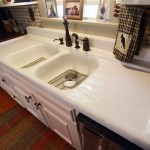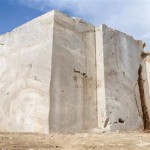Essential Aspects of Fire Alarms in Bathrooms
Fire safety is a critical concern in all areas of a building, including bathrooms. It is crucial to ensure that bathrooms are equipped with appropriate fire alarms to aid in early detection and prompt evacuation in the event of a fire.
Bathrooms present unique challenges regarding fire alarms due to the presence of water and moisture. Standard smoke detectors may not be suitable due to false alarms triggered by steam or humidity. Therefore, special considerations must be made when choosing and installing fire alarms in bathrooms.
Types of Fire Alarms for Bathrooms
- Photoelectric Smoke Alarms: These alarms use a light beam to detect smoke. They are less prone to false alarms from moisture or steam.
- Ionization Smoke Alarms: These alarms use an ionization chamber to detect smoke. While they are faster at detecting smoke, they may be more susceptible to false alarms in humid environments.
- Combination Smoke and Carbon Monoxide Alarms: These alarms detect both smoke and carbon monoxide, which can be emitted by certain types of fires. They are a good choice for bathrooms in homes with fuel-burning appliances.
Placement of Fire Alarms in Bathrooms
- Ceiling Mount: Alarms should be mounted on the ceiling at least 4 inches away from any wall or obstacle.
- Avoid Direct Steam: Position alarms away from areas where steam or moisture can directly hit them.
- Centralized Location: The alarm should be placed centrally in the bathroom to ensure it can detect smoke from any part of the room.
Maintenance and Testing
- Regular Testing: Fire alarms should be tested monthly to ensure they are functioning correctly.
- Cleaning: Gently vacuum or wipe down alarms to remove dust and debris.
- Replace Batteries: Smoke alarms typically use 9-volt batteries that should be replaced annually.
Additional Considerations
- Hardwired Alarms: Hardwired alarms are connected directly to the electrical system of the building and are less likely to be disabled or forgotten.
- Interconnected Alarms: Interconnected alarms allow all alarms in the building to sound when one alarm is triggered, ensuring a more effective evacuation.
- Building Codes: Local building codes may have specific requirements for fire alarms in bathrooms. It is essential to consult these codes before installing alarms.
Conclusion
Installing appropriate fire alarms in bathrooms is a crucial aspect of fire safety. By carefully considering the factors discussed above, you can ensure that your bathrooms are equipped with the necessary devices to protect you and your loved ones from fire hazards.

How To Stop A Fire Alarm Going Off Due Steam

Why Do Smoke Alarms Keep Going Off Even When There S No

Detection Of Fires In The Toilet Compartment And Driver Sleeping Buses Coaches Installation Considerations Based On Full Scale Tests Sciencedirect
The Best Smoke Detectors Of 2024 Tested And Reviewed

Smoke Alarms And Heat Fire Safety At Home London Brigade

Pin Page

How To Buy The Best Smoke Alarm Choice

Why Do Smoke Alarms Keep Going Off Even When There S No

Smoke Alarms Carbon Monoxide Detectors Necessary Bacon Plumbing Heating Air Electric
Why Do Smoke Detector Alarms Go Off Even When There S No Abc News








